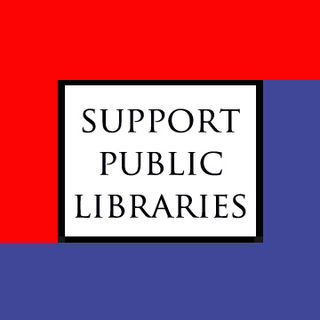 W
WThe size of libraries in the United States is determined by a number of metrics, including number of holdings, by circulation ; or by number of library visits.
 W
WPublic library advocacy is support given to a public library for its financial and philosophical goals or needs. Most often this takes the form of monetary or material donations or campaigning to the institutions which oversee the library. Originally, library advocacy was centered on the library itself, but current trends show libraries positioning themselves to demonstrate they provide "economic value to the community."
 W
WThe Library Bureau was a business founded by Melville Dewey in 1876 to provide supplies and equipment to libraries. The Library Bureau quickly became a one-stop vendor for supplies and equipment a library might need. By 1900, its lengthy, well illustrated catalog was widely distributed.
 W
WLook Back Library (LBL) is a non-profit organization dedicated to preserving the history of skateboard magazines, and other printed skateboard materials, through traveling exhibits and the building of publicly accessible skateboard magazine libraries.
 W
WThe Mountain Plains Library Association (MPLA) is a non-profit organization based in the western United States that promotes the development of librarians and libraries by providing educational and networking opportunities to members.
 W
WPublic law libraries provide access to primary legal sources and secondary sources used in legal matters. In most U.S. states, public law libraries are part of the trial court system, a department of the state or county government, or an independent local government agency managed by a board of trustees. Public law libraries serve several user groups with different information needs: judges and their support staff, attorneys in all types of practice, and the general public.
 W
WA public library is a library that is accessible by the general public and is usually funded from public sources, such as taxes. It is operated by librarians and library paraprofessionals, who are also civil servants.
 W
WState aid for libraries is funding provided to public libraries by state governments in the United States. State aid is typically divided among all libraries in a state in the form of block grants. Each eligible library receives a percentage of state aid based on the library's budget, income and population served. State aid supplements local library budgets, and is particularly important for rural libraries and libraries supported by a small tax base. Other reasons states offer aid to libraries are to promote resource sharing among libraries; to encourage cities to establish and support libraries; and to establish minimum standards for libraries. State aid is combined with other forms of library funding—including federal aid, funding by local governments and private philanthropy—to provide money for library books, staff and information technology. Other forms of aid may be used to fund library construction and remodeling.